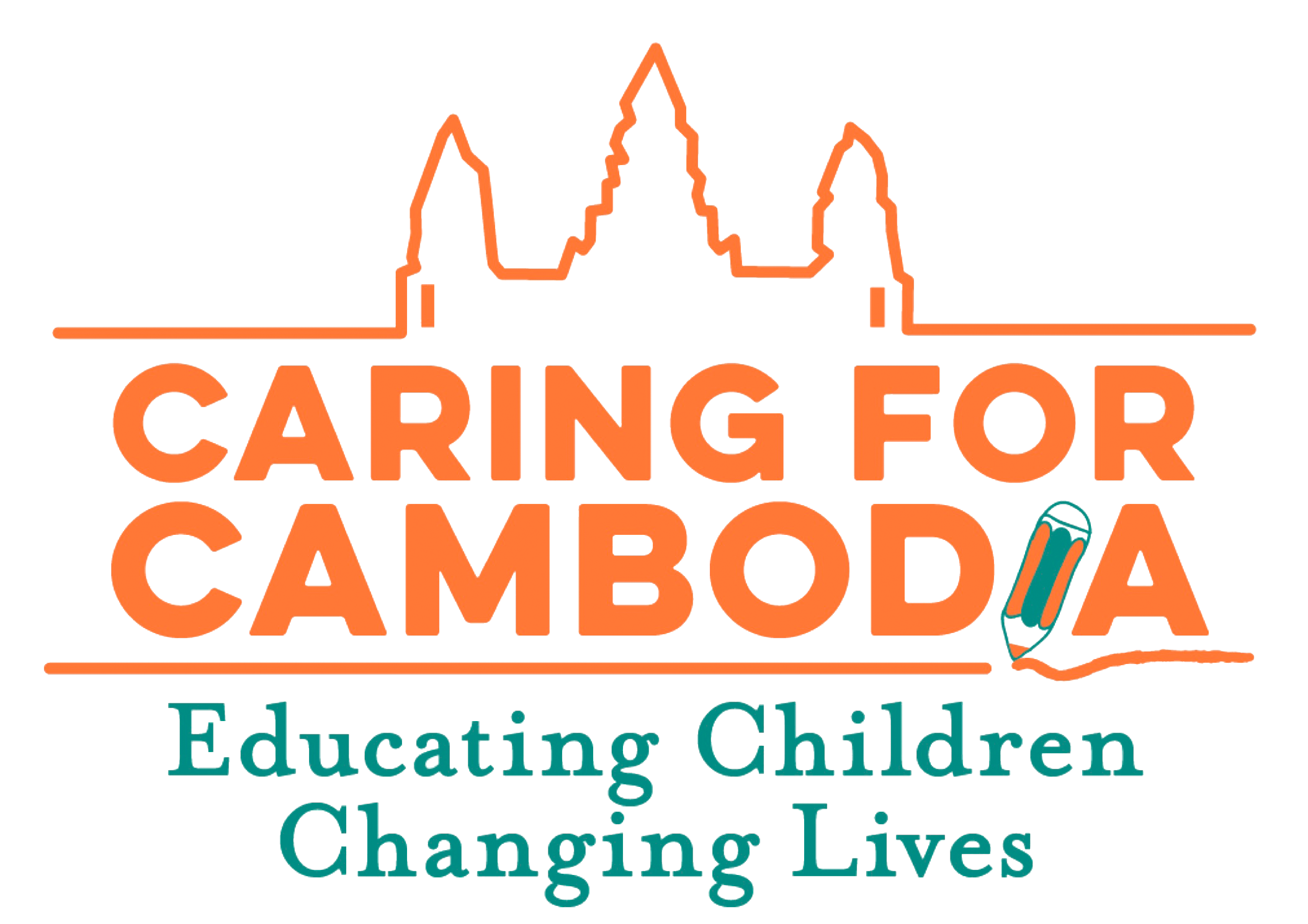Within Phnom Penh and other urban centres, the din of construction tells the story of an economic boom that began in the early 2000s and has only accelerated with a flood of Chinese investment over the past decade. But this endless growth and prosperity have not reached the population evenly, with the growing divide between rural and urban populations exposing expanding inequalities.
Cambodia’s under-performing education sector provides a particularly poignant example of this gap. While the issues of inadequate teacher training and community attitudes in which educational attainment is not valued remain major obstacles for children across the entire country, they hit hardest in Cambodia’s countryside.
With the new school year only just starting in January – two months late due to ongoing Covid concerns – and reports of reduced enrollment across the country already coming in, children living in the countryside have yet another obstacle in their path.
Director of the Policy Department at the Ministry of Education, Youth and Sports, Dr. Chankuolika Bo, explained the difficulties in creating a culture in the Kingdom’s rural communities that values education.
“The rural population has long been falling into the trap of the uneducated-poverty cycle,” she told the Globe. “Think of the cycle – at first rural citizens are hesitant or even refuse to send their children to school due to the perception that education drains their economies and is useless. They believe education makes no difference for their family.”
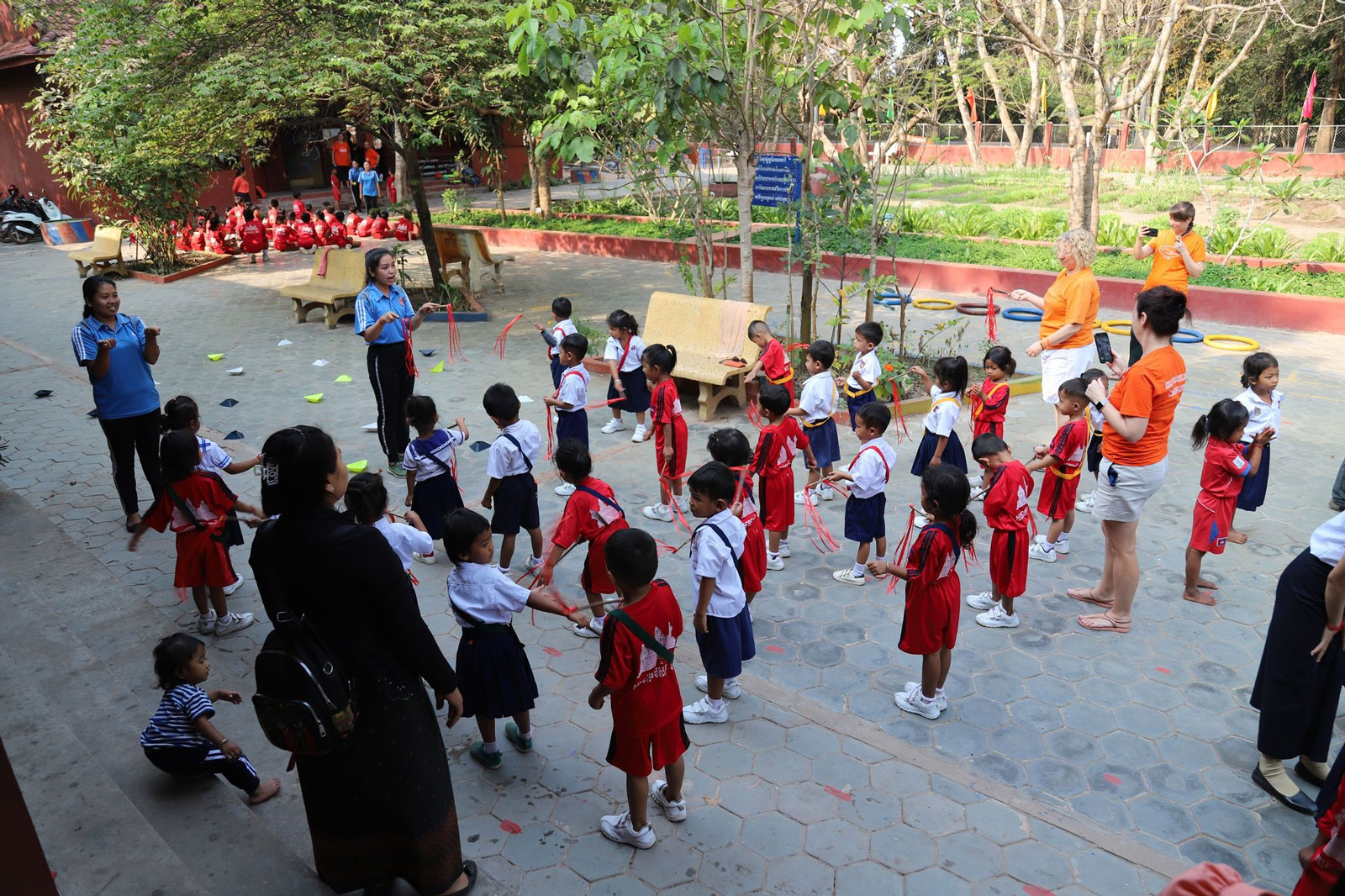
The Cambodian government has had its sights set on education for years. While enrollment in primary school has reached a more balanced distribution today, a 2008 report from the Education Policy Data Center revealed a sharp drop off when students in rural areas reach secondary school, suggesting that a commitment to education is tentative in those communities.
In the ensuing years there have been considerable strides made in providing education to children across the country. However, the disparities between cities and rural Cambodia continue to be borne out in the data. According to the 2018 Programme for International Student Assessment for Development (PISA-D), a leading tool for evaluating the quality and efficiency of education in developing countries, rural Cambodian students consistently underperform compared to their urban counterparts.
“In Cambodia we can see a significant difference between the performance of students in urban and rural schools,” the report stated. Speaking to the maths, science and reading metrics used to determine student competency, the authors continued, “Students in urban schools outperformed those in rural schools in all the three domains, and the differences remained significant even after accounting for differences in students’ family resources.”
An issue that perhaps doesn’t strike at the heart of Cambodia’s priorities surrounding growing Industry 4.0-focused development, few studies focus on the issue of urban-rural divides in education. But anecdotal evidence abounds of the challenges facing rural teachers and pupils.
Soung Sopheary, Deputy Director of Education for Caring for Cambodia (CFC), a US-based NGO that partners with public schools in Siem Reap, has seen firsthand the way that parents’ low opinions of education can disrupt children’s lives.
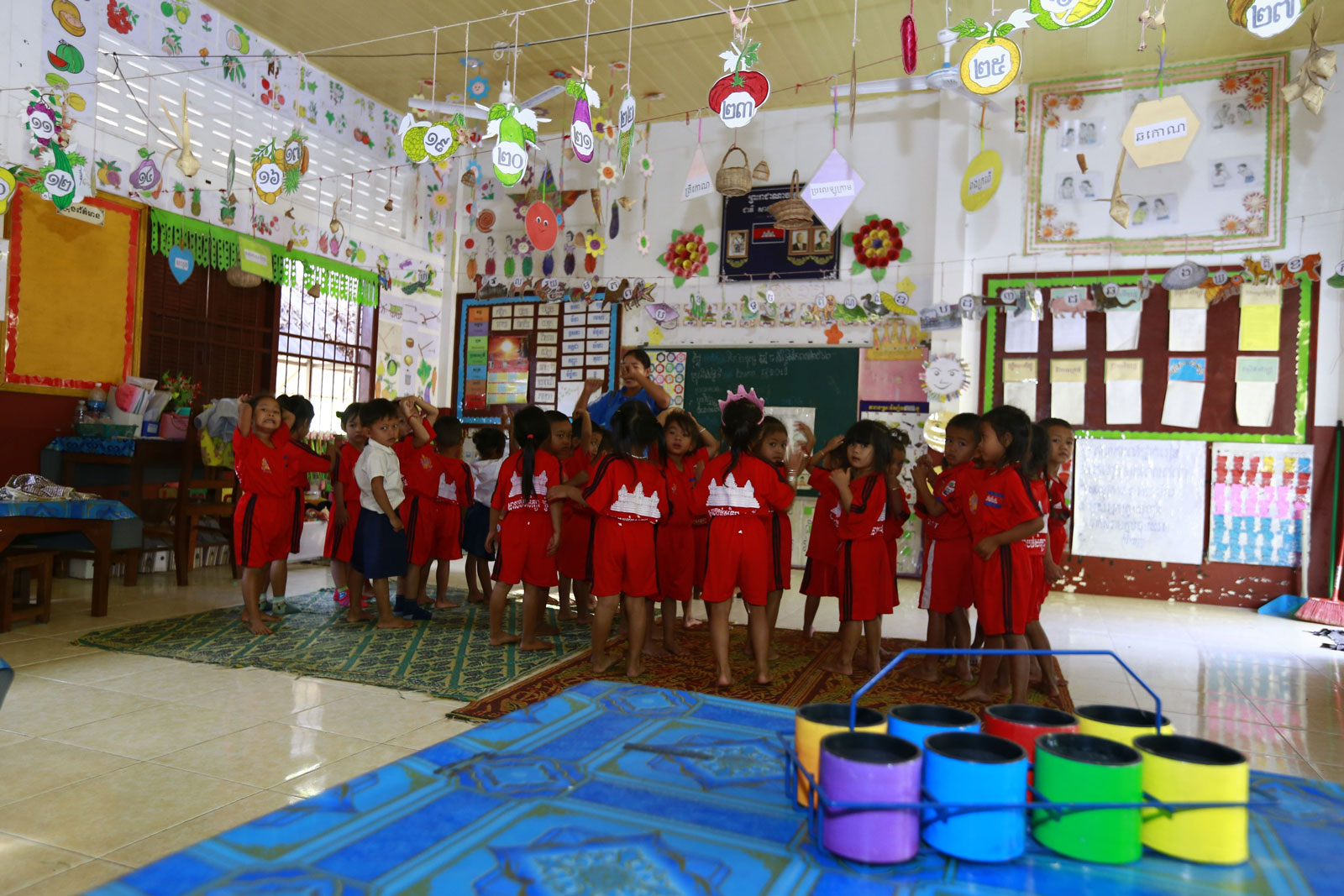
“Some of the parents liked to play cards, so sometimes they would stop their children from going to school so they can sit with them and change the money,” she said, speaking to her early days teaching in the town’s public schools back in 2008. “Almost half of the students would do this.”
The reasons behind these perceptions about schooling are complex, but for Dr. Chankuolika improving the quality of education and community building are both essential to reaching rural students.
“We must enhance and rehabilitate our education system. By doing so we can convince the rural communities of the real value and potential of education,” she said. “Then, we must set up a school committee … selected from the pool of school children’s parents and elders from communities.”
For Jamie Amelio, Caring for Cambodia founder and CEO, there is one strategy for enhancing the rural education system that stands out.
“If your teachers are not trained and they don’t love what they do and they don’t want to be there for those kids, you don’t have an education system,” she told the Globe.
Cambodia has a long history of rote learning that can be traced back to the traditional role of monks as keepers of knowledge and the hierarchies that continue to influence society. Based on repetition and memorisation, in Cambodian classrooms this strategy takes the form of a teacher standing in front of rows of students reciting phrases and formulas from a textbook as they are echoed by pupils.
I went down with a friend who was also a teacher and it was absolutely obvious the minute you went in, what was needed was the teachers needed to be trained
And while this style of instruction has its place in the classroom, many educators believe a more interactive approach to schooling with an emphasis on the student’s role as a stakeholder can lead to greater engagement and more meaningful education.
Learner Centered Education (LCE), is a style of teaching that uses games, encourages student questions and fosters critical thinking as a way to make the classroom an engaging environment. With this methodology as a tool, Katie Sansom, a British educator working in Singapore with 35 years of experience in the classroom, has played an integral role in developing Caring for Cambodia’s Teacher Training Programme (TTP) since her first trip to a CFC school in Siem Reap back in 2006.
She has returned every year for the biannual, three-day upskilling conferences that are just one element of the TTP, which also includes mentor teachers, scholarships and trips to Singapore for outstanding educators.
“I went down with a friend who was also a teacher and it was absolutely obvious the minute you went in, what was needed was the teachers needed to be trained,” she told the Globe.
But while the enthusiasm that Cambodian teachers demonstrated during these events was encouraging, the CFC team recognised that more is required than teaching conferences twice a year to allow these new practices to take root and effect real change. With this in mind, it addresses this need for ongoing training through local mentor teachers. Demonstrating new skills and strategies throughout the year, classroom observations and one-on-one feedback twice a week at CFC schools, these mentors are central to the success of the programme.
But while this ongoing training is key, things become more complicated on this front as you venture further into the countryside, explained Marong Chhoeung, Project Manager for Aide et Action Cambodia – an education-focused NGO operating in 19 countries.
“Because they are closer to the Department of Education, urban teachers have opportunities to receive more training than teachers in rural areas,” Marong said. “Many of the teachers I have met in rural areas rarely receive any [additional] training.”
Because of these geographical difficulties, both Caring for Cambodia and Aide et Action utilise a ‘train the trainer’ approach in Cambodia to promote sustainability. At Aide et Action specifically, training sessions in eight provinces four times a year, as well as ongoing monthly coaching sessions, are designed to build a foundation of educational best practices – a particularly important goal in rural areas.
Marong sees this strategy of ongoing training as one of the most vital ways to improve education in the countryside. “It is very important to enhance teacher capacity and by training the trainer, our teams can then provide skills training at the local level,” he said.
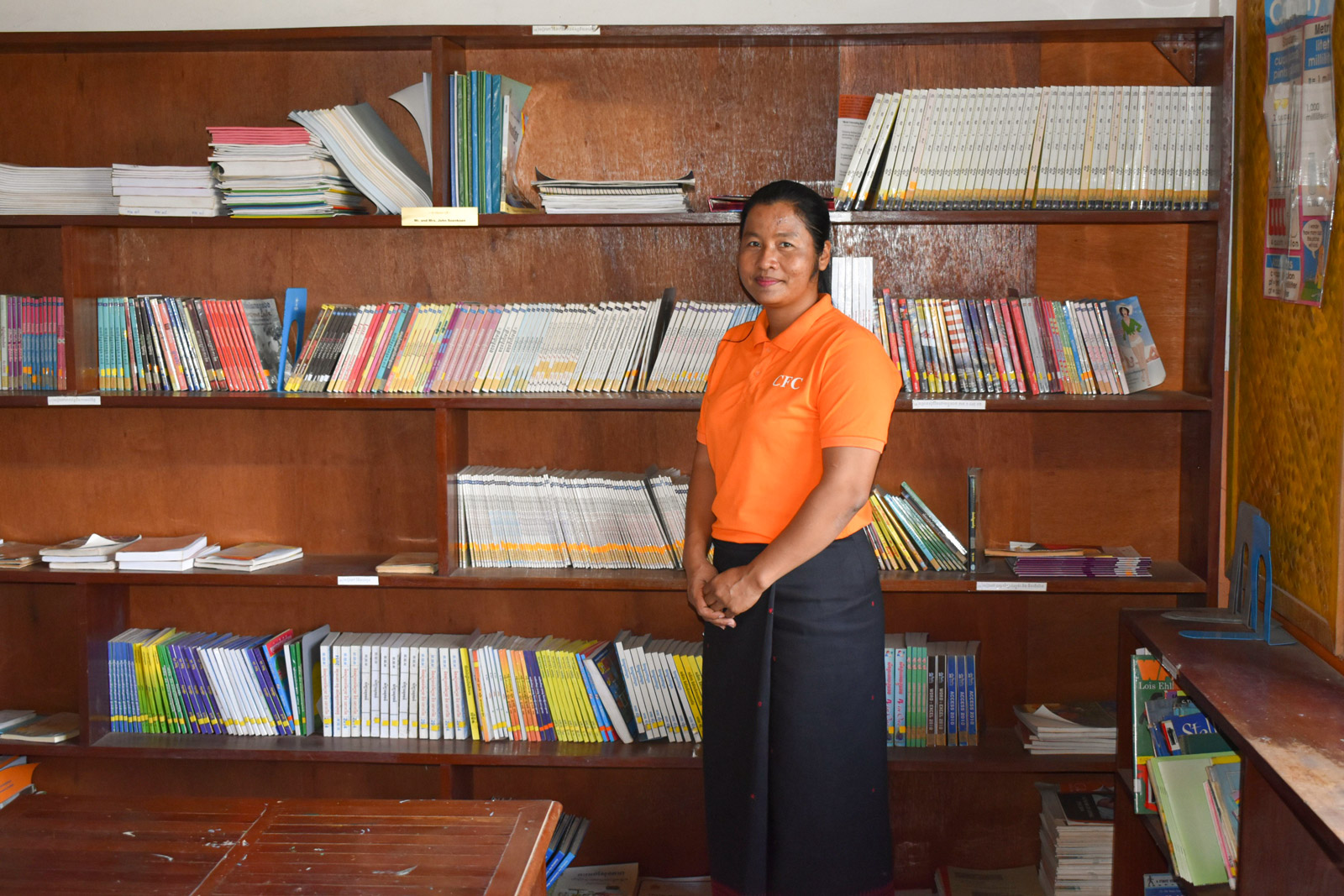
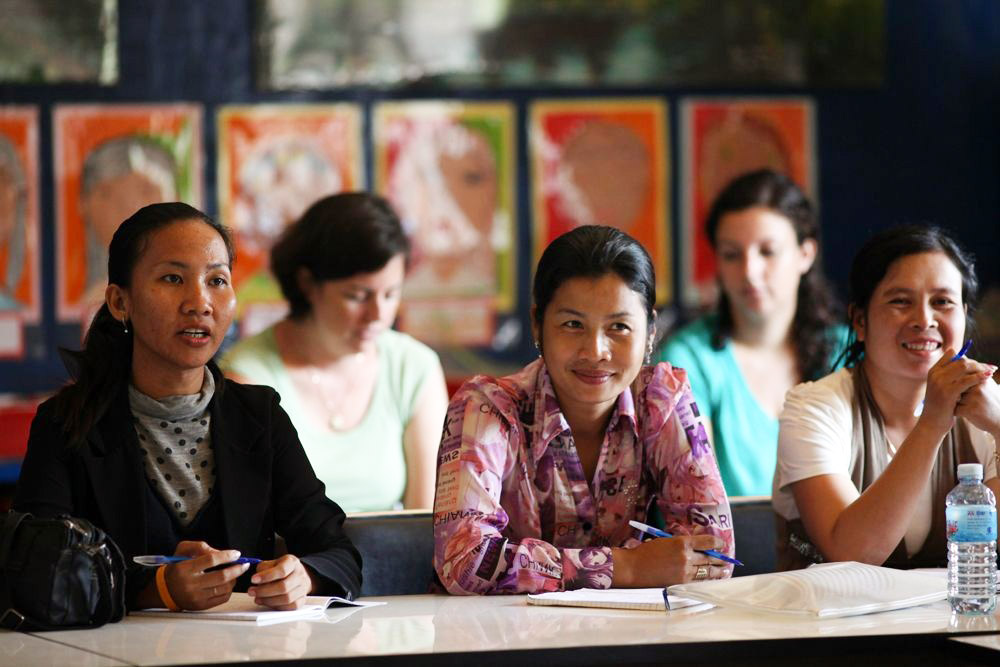
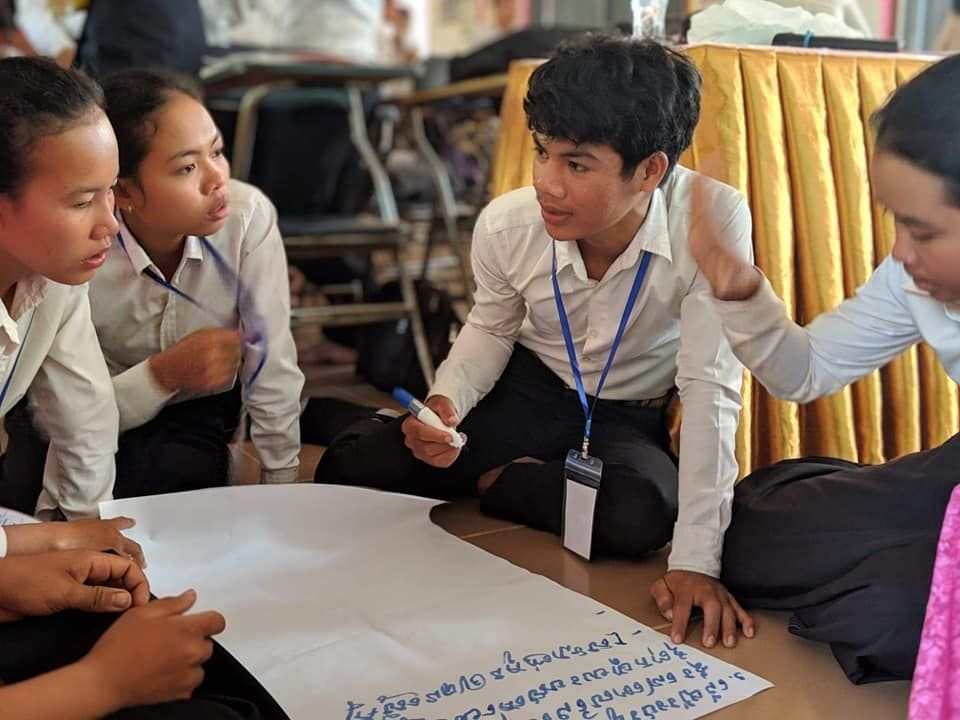
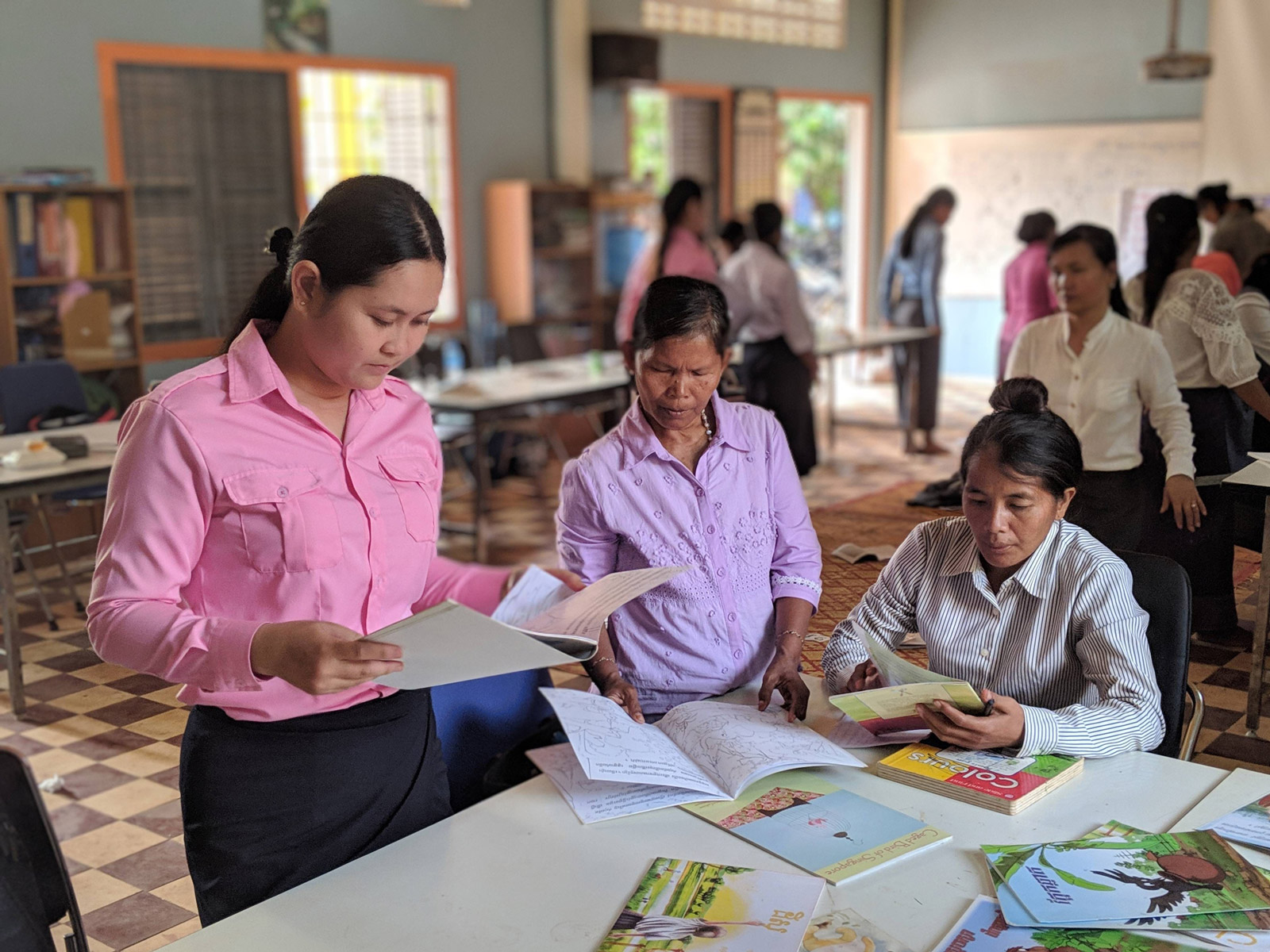
For the students that come into my class, I create a lot of study games. I use pictures, cards, many things that let them play while they learn
Youth Star Cambodia is another group working to create a sustainable groundwork for rural education in the Kingdom’s provinces. The group’s mentor programme sends recent university graduates to volunteer in rural villages for six, nine, or 12 months, working in close partnership with commune leaders, monks and local teachers to help at-risk learners back on a path towards education.
“The main activity of our volunteers is to set up youth clubs in the community,” explained Luy Tech Chheng, Youth Star Program Director. “The volunteer’s role is also to provide mentoring and to teach the youth club members to conduct reading activities and community awareness campaigns,” he concluded.
With 20 youth clubs operational as of June last year – 10 of which have “matured” and function independently within their communities – Youth Star’s mentoring programme provides a glimpse of the possibilities for rural education when community stakeholders are empowered and understand the importance of education.
The multigenerational impact of Caring for Cambodia’s own ‘train the trainer’ programme is embodied by Nat, a 24 year old Academic Support Teacher at Arahn School on the edge of Siem Reap town.
Starting her time with CFC as a student, Nat eventually joined the teaching team and is now responsible for providing additional attention to students that are at risk of dropping out and bringing out of school students back into the classroom.
“For the students that come into my class, I create a lot of study games,” she said, explaining the approach she takes to the specialised, hour-long classes. “I use pictures, cards, many things that let them play while they learn.”
Nat sees the LCE strategy as particularly useful for her students, many of whom are at risk of falling into the “uneducated-poverty cycle”.
“There are so many activities I learn from the Teacher Training Program and other teachers that provide stimulating ways to teach that make the students happy that they are learning,” she explained.
Nat’s and CFC’s efforts have yielded tangible results.
According to a 2016 report conducted by Lehigh University, dropout rates at CFC primary schools were 1.52%, compared to Siem Reap’s average of 12.8%, and the national average of 8.3%. Attendance remains strong through lower and upper secondary grades – a key indicator of community attitudes – with CFC dropout rates less than one third of both Siem Reap and national levels.
Like Amelio and Dr. Chankuolika, CFC’s Soung Sopheary believes teacher training programmes are a key tool in shifting rural parents’ attitudes and expanding engagement with the community.
“When the parents see their children learning, they want to send them to school,’’ she concluded.
But far from just benefiting Cambodia’s millions of rural students, Dr. Chankuolika pointed to the impact that improved education in these areas can have for the Kingdom at large.
“More Cambodian people live in rural areas than in urban areas, and ensuring education access to rural communities means building human resources,” she said. “Enabling this environment is the only effective way to help to address the long-run problem of poverty in Cambodia.”
This article has been written in partnership with Caring for Cambodia, as a part of an ongoing series exploring education in Cambodia and the steps being made to bring hope to future generations. Find out more here.
